NEED HELP NOW?
CLICK HERE
COACHING WITH CONFIDENCE
COACHING WITH CONFIDENCE
TABLE OF CONTENTS
Let's dive into why mental health matters, especially for adolescent girls. We'll give an overview of common mental health issues and explore how coaches can help girls grow stronger, both mentally and physically.
1.
INTRODUCTION: MENTAL HEALTH MATTERS
Think of this section as your introductory guide to mental health. We'll explore basic concepts about mental health and how supportive coaching can positively impact girls, especially when they face unique challenges in sports and life.

Welcome
We're so glad you're here. This section is your starter kit on mental health. So, what's mental health? Let's break it down: Mental health is all about feeling good inside, being able to deal with life's ups and downs, connecting well with others, and not letting worries or fears hold you back. It's about being in a good place mentally so you can enjoy life, face challenges, and keep growing.
Good mental health can lead to benefits like strong friendships, happiness, resilience, better physical health, and positive self-esteem.
Mental health is part of a positive feedback loop that includes physical health, friendships, safety, and positive relationships with adults.
As someone who coaches girls, you may have already encountered girls who are facing challenges with their mental health. We're here to help. Keep in mind we're not trying to cover everything here — mental health is a huge topic. But we'll touch on the issues coaches have told us are front and center in their programs. We hope this toolkit will give you a good starting point to help and support the girls you coach.
One other thing: We see you. We know mental health is a concern for everyone. Adults of all ages and backgrounds increasingly face challenges with depression, anxiety, thoughts of suicide and other issues affecting their mental health. Chances are, you or someone you know is going through something. The tips and resources here can help.
Good mental health isn't about the absence of stressors. It's about having the tools and support systems to help you manage and cope.
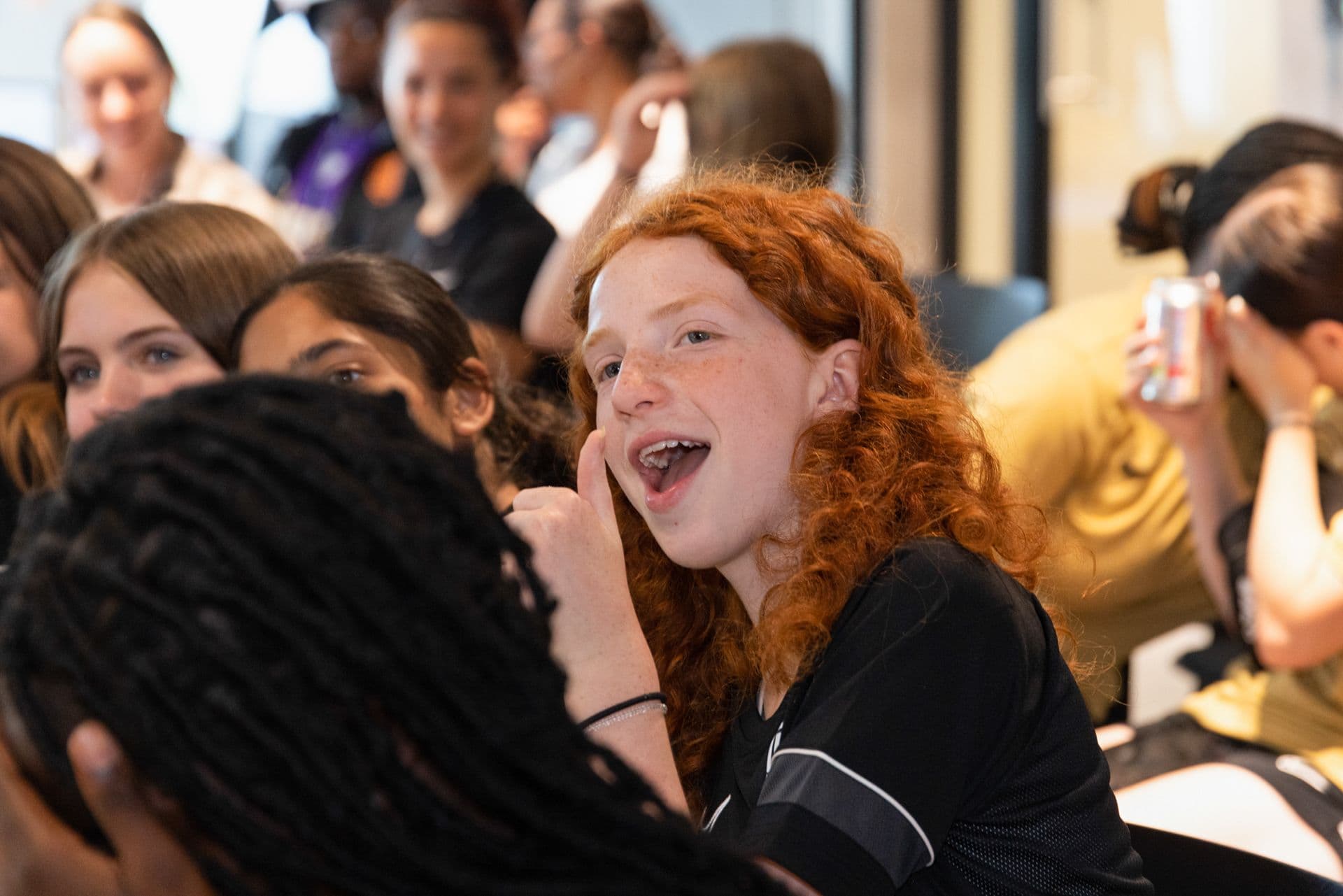
Why Girls?
While many of the strategies and resources included here are useful with boys, we focus on girls because they face more challenges to good mental health. For example, girls are far more likely to be diagnosed with anxiety and depression than boys are.
Girls also face unique stresses in sports, such as money issues, caregiving responsibilities or lack of support. On the field, body image issues, disordered eating and comparison culture can threaten mental health.
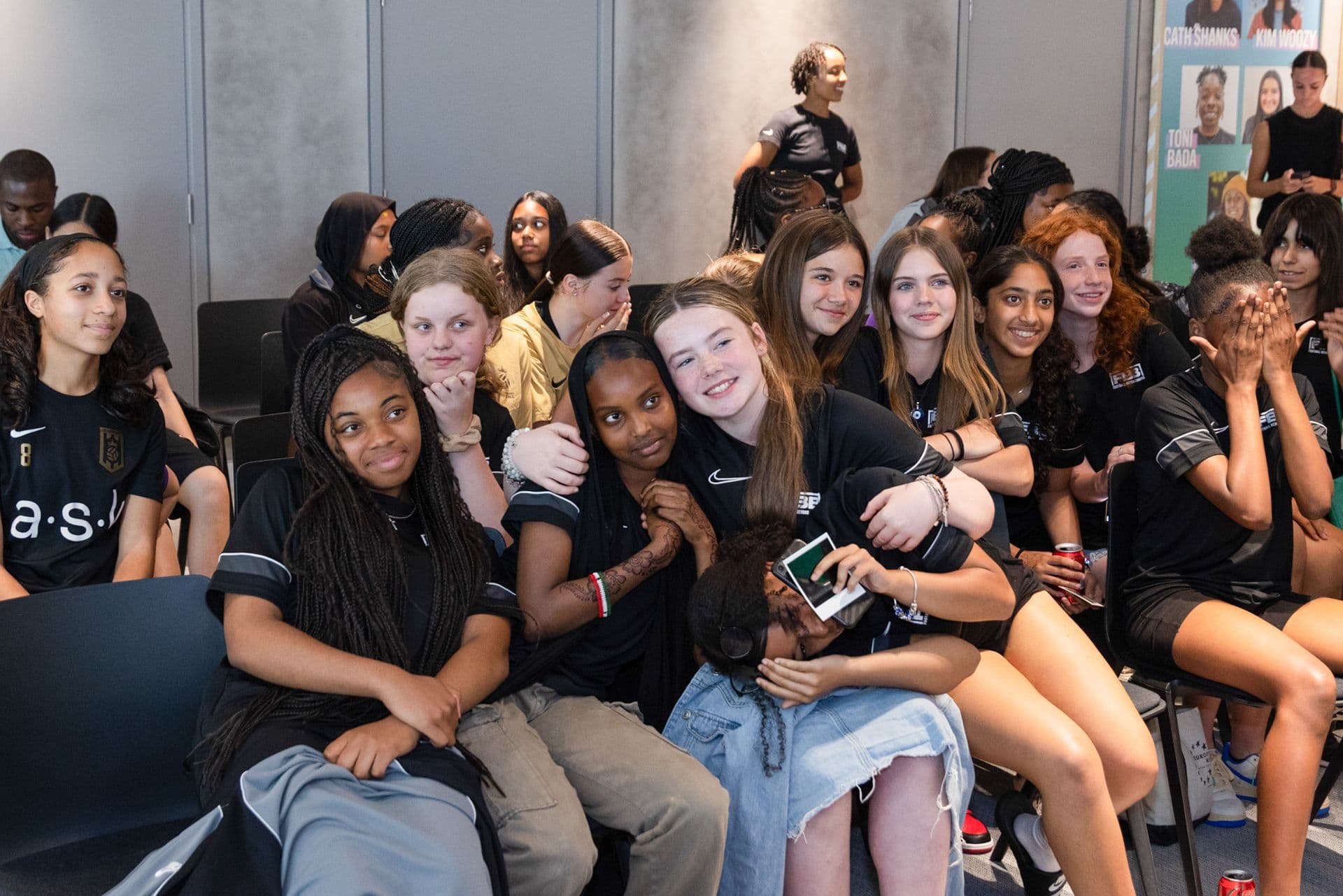
These resources were created for anyone coaching or teaching young people who identify as girls, including nonbinary youth or those exploring their gender identity. We aim to create an inclusive and supportive environment, ensuring all young people feel respected, accepted and encouraged in sports.
We use the terms "girl(s)," "she," "her," and "they" here for convenience, but be sure to ask young people their preferred pronouns to ensure everyone feels respected and included.

Why You? The Power of the Coach
The Coach in Your Corner program was inspired by research that looked at resilience, particularly why some kids who face trauma manage to bounce back while others struggle. The researchers discovered that kids who thrive usually have at least one dependable adult in their lives. That can include teachers, coaches, or program leaders — so long as it's someone who is dedicated, stable, and consistently present.

As a coach, you're more than just a guide on the field; you're someone girls trust and look up to. While you're there to support and listen, remember that no one expects you to be a mental health professional (unless you are, of course). It's OK to set limits and guide girls to experts when they need more help than you can give. You're a key part of their support system, helping them find the right resources when needed.
Knowing who to reach out to, whether it's a mental health professional or a community mental health clinic, ensures you have the support needed to guide your athletes effectively in those crucial moments.
Young people around the world are facing unprecedented challenges related to their mental health. If you coach girls, it's important to recognize that they are disproportionately impacted.

Risk Factors — What to watch out for
When certain risk factors are present, it increases the chances that someone will experience mental health issues. These can be problems at home, feeling alone, dealing with too much stress, violence in the neighborhood, poverty, discrimination, poor self-esteem, not getting the help we need, media influences, or having family members with mental health issues. But remember, not everyone with these factors will struggle, and sometimes there are no clear signs, so it's important to always be on the lookout for girls who might need extra support.

Protective Factors — Safety nets for mental health
Protective factors are internal and external influences that contribute to positive mental health. These include feeling safe and secure, feeling like we belong and are accepted, having social connections and strong family dynamics, getting the right kind of help when we need it, having mentors or role models, being involved in our community, having high self-esteem, knowing good coping skills, and learning how to deal with stress in a healthy way. But even when all these things appear to be in place, someone might still face mental health challenges.
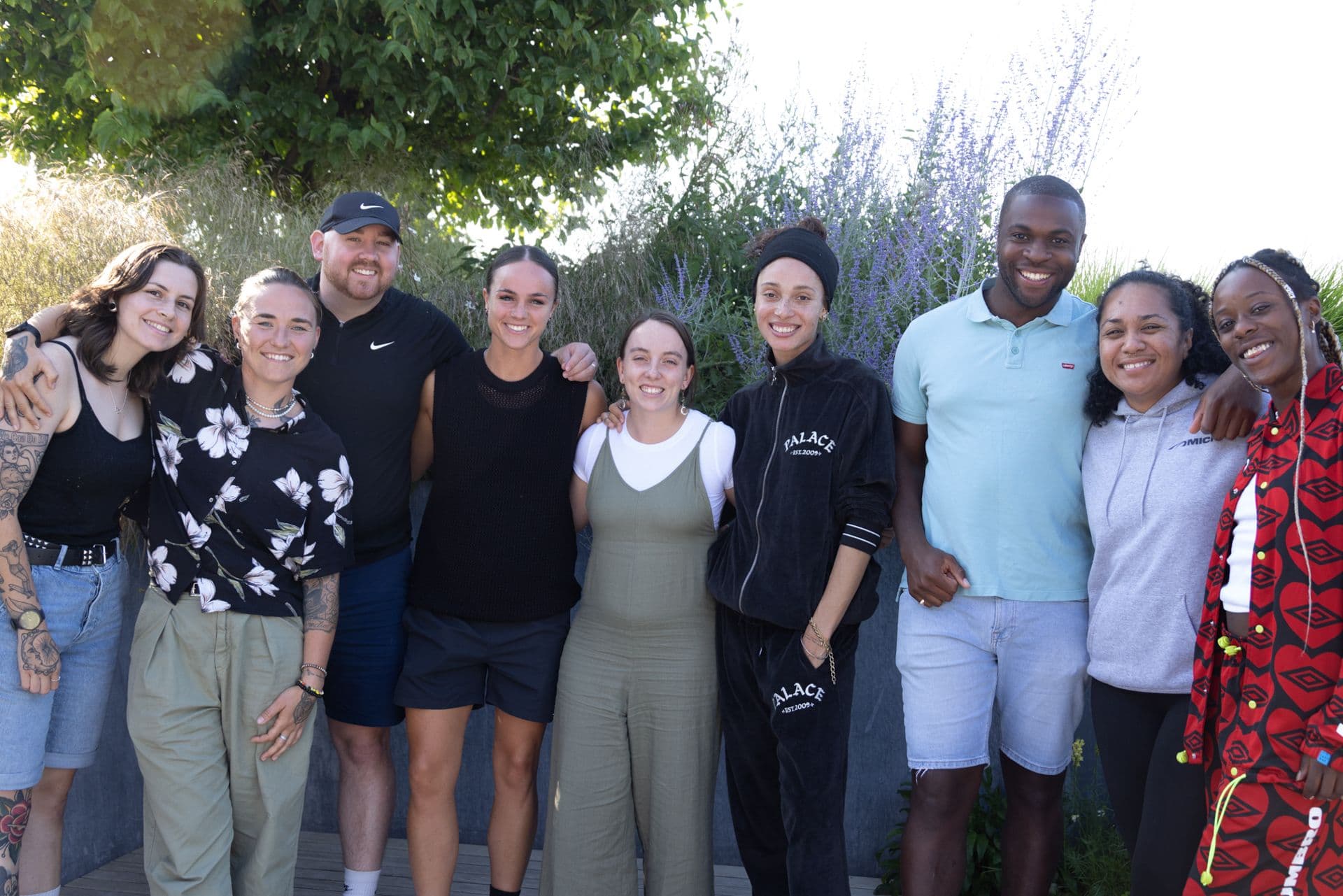
Intersectionality: Where risk and protective factors meet
Different parts of our lives, like our background, socioeconomic status, culture, gender identity or sexual orientation, can affect our mental health. This is called intersectionality — because all of these identities can intersect and affect our mental health.
Intersectionality is important for understanding a girl's mental health. Let's say a girl is both a racial minority and LGBTQ+. She might deal with racial discrimination and homophobia, which can increase her stress and anxiety. These problems can make her feel more isolated and affect her mental health more than if she faced only one kind of discrimination.
It’s important for coaches to recognize how identities can overlap and how they can affect mental health. Here are a few examples of different parts of girls’ lives that can intersect with each other:
- Gender expectations: Family or cultural pressures can create expectations for girls to follow specific gender roles, which can affect self-esteem and overall mental health.
- Money: Lack of financial resources can impact everything from food security and ability to participate in sports to access to mental health support.
- Language: When English is not a girl’s first language, she could struggle to connect with teammates and build friendships. This can lead to frustration, lower self-esteem and anxiety.
- Disability: A disability could cause a girl to feel excluded in certain situations or misunderstood by her peers, impacting social interactions and mental health.
- Sexual orientation: A girl who identifies as LGBTQ+ might struggle with acceptance within her family or community, leading to feelings of isolation and emotional distress.
"I get that there are a lot of things that make you, you. How can I help you manage the different parts of who you are?"
"Are there any challenges you're dealing with that you feel okay talking about?"
"What can we do as a team to make sure everyone feels included and valued?"
Here's how you can be a supportive coach:
- Acknowledge intersectionality: Recognize that a girl's mental health experience may be influenced by multiple intersecting identities, including race, ethnicity, socioeconomic status, sexual orientation, and gender identity.
- Use cultural sensitivity: Avoid making assumptions based on stereotypes, and seek to understand a girl's cultural context.
- Take time to listen: Actively listen to a girl's perspective and experiences. You won't always have the right answers, but it's important to check in with the girls you coach to make sure you give them the space to use their voices.
- Create safe and inclusive spaces: Foster an inclusive team environment by setting ground rules around policies, language and activities that are safe and accessible for all.
- Encourage dialogue: Create opportunities during check-ins or warm-ups for open conversations among the girls you coach.
- Lead by example: Be a role model for inclusive behavior and language, advocating for an intersectional approach to mental health.
- Keep learning: You won't have all the answers, and that's OK. The key is to keep learning and be open about fixing mistakes.
Your role is huge in making sure every player feels respected, included, and supported, no matter their background or identity. Let's make sports a place where everyone can thrive!
Stigma at Work
Stigma is caused by the unfair beliefs and wrong ideas people have about mental health. This can make it hard for people to talk openly about their feelings. Sometimes, girls might feel judged because of these stereotypes, making them less likely to ask for help. It's unfortunately all too common for people's struggles to be oversimplified or dismissed. You may have even heard some of these yourself:
"Just tough it out."
Implies that struggling with mental health is a show of weakness and can be overcome by simply being "tougher," dismissing the real and complex nature of mental health issues.
"It's all in your head."
Suggests that mental health struggles aren't real or valid, implying that they can be overcome if the person just stops thinking about them.
"You’re being too sensitive.”
Invalidates the person’s feelings and experiences, suggesting that their reaction to stress or challenges is exaggerated, unwarranted or not real.
“Everyone gets stressed, just deal with it.”
Minimizes the person’s experience by comparing it to normal stress. This ignores the fact that the person’s struggle might be more intense or difficult to manage.
“Real athletes are stronger than that.”
Pushes the idea that being involved in sports means you shouldn’t have mental health challenges. In addition to being unhelpful, this adds to the pressure girls may feel to hide issues.
2.
EXPLORE: MENTAL HEALTH TOPICS
Dive deeper into specific mental health issues such as anxiety, depression, and suicide awareness. This section provides detailed information on what to watch for and how these issues commonly manifest in young athletes. You'll gain a better understanding of each condition and learn how to identify signs that might require further action.

In this section, you’ll find information on common mental health topics like anxiety, depression, and suicide awareness — challenges that girls in your program or even you might face. Each topic is broken down to help you understand what to watch for and when to act. At the end of this section, you’ll find crucial points that signal when it’s time to seek professional help. Additionally, the Coach’s Playbook section offers exercises to enhance your ability to discuss these important issues with your athletes effectively.
These topics are some of the most common mental health topics. This resource was prepared with the help of mental health professionals, but keep in mind this is a general overview and not meant to be exhaustive. Still, many of the resources can also help you with issues you might encounter.
Calling for Help
Before we dive into specific mental health topics, it’s good to get a sense of the kinds of things to be on the lookout for.
Here’s a quick list of red flags that indicate additional help may be needed:
- Concerning behaviors continue, even after consistent check-ins
- You see marks, bruises, cuts or bodily injury
- She voices hopelessness or says things like “I wish I wasn’t here”
- You notice extreme isolation
- She stops showing up to practice
Immediate Professional Help
Seek professional help immediately if you fear for a girl’s safety.
This includes situations where she expresses thoughts of self-harm, is experiencing abuse, or shows signs of severe distress. As a coach, mentor or teacher, your primary responsibility is to ensure the safety and well-being of the girls under your guidance.
Not sure if you should ask for help? When in doubt, reach out.
Engaging with Parents
When to Speak to Parents and Guardians:
If the situation doesn’t improve: If you have ongoing conversations with a girl and notice no improvement in her well-being or if her behavior raises concerns, it is crucial to involve her parents or guardians.
If the situation is critical: It’s essential to reach out to a girl’s parent or caregiver if you see threats to her immediate well-being, including persistent signs of anxiety, depression, unexplained injuries, or drastic changes in behavior.
What if the concern involves the parent or guardian?
Call your local child protection agency immediately.
How to Approach Parents and Guardians
Be Honest and Compassionate: Start the conversation by expressing your concern for the girl's well-being. Explain the observations you've made without making assumptions or diagnoses.
Provide Specific Examples: Share specific instances or patterns you've noticed that prompted your concern. This helps parents understand the context and seriousness of the situation.
Offer Support: Let parents know that you're available to support them and their child, and suggest seeking professional help if necessary. Provide them with resources or contacts if available.
What if the parents deny the problem or aren’t receptive?
If her health or safety are at immediate risk, call your local child protection agency. Otherwise, follow league or school protocols and keep trying with the girl and her parent(s)/guardian(s).
Communicating with Girls About Involving Parents/Guardians
You’re in a trusted position and it’s tough to know when to connect with parents and guardians. It’s even harder to explain to a girl that you need to share what she has told you or what you’ve observed. Here are a few tips:
Transparency and Support: Explain Your Role Early On: Make it clear to girls that while you are there to guide and support them, their safety is always the top priority. Emphasize that certain situations require involving their parents or guardians to ensure their well-being.
Have Respect and Take Care: Approach the conversation with respect and care. Acknowledge her feelings and reassure her that your intention is to help and protect her.
What do you say when she shares something that you need to report (either legally or ethically)?
Confidentiality and Reporting Guidelines for Coaches
While it is crucial for the girls you coach to trust you, both the coach and the girl must be conscious of the fact that you will need to report something alarming a girl says if you fear for her safety or the safety of others. This includes vocalizing an intent to harm themselves or others, or verbalizing that they are experiencing violence. If you are unsure, it is always best to have a conversation with the student and let them know you will be seeking advice from a professional. If there is an imminent fear for the girl's safety, contact the authorities immediately.
Example of Handling a Disclosure
Girl: "I feel so overwhelmed sometimes, I think I just want to hurt myself to make it stop."
Coach: "I really appreciate you trusting me by sharing this. I’m really sorry you're feeling this way. Since your safety is the most important thing right now, we need to share this with someone who can help us. Let's talk to a professional together to make sure you get the support you need."
By being transparent and supportive, coaches can maintain trust while ensuring the safety of the girls they work with.
Whenever you suspect health and safety are at risk, call for help.
Mental Health Topics: Anxiety
Anxiety is our body’s alert signal that something might be off. It can show up as worry, tension, or physical changes like a faster heartbeat. A bit of anxiety is normal and keeps us safe. It’s a reaction to stress and is our body’s way of warning us that something may be wrong. But too much anxiety — along with excessive feelings of nervousness or anxiousness — can interfere with a person’s daily life and become a disorder.
A few warning signs:
- Out-of-proportion reactions to situations
- Difficulty with daily routines
- Constant sense of impending danger or doom
The difference between fear and anxiety is that we can experience anxiety even if there is no real or tangible threat in front of us.
Common anxiety disorders
Not all anxiety disorders are the same.
Here’s a quick overview and some signs to look for:
- Generalized anxiety disorder: Worrying too much about everyday things
- Panic disorders: Sudden, intense panic attacks
- Phobias: Strong fear of specific things or situations
- Social anxiety disorder: Fear of social embarrassment or judgment
If you think a girl might need help: Trust your instincts and follow your program’s reporting protocol. You can also refer to the Lifelines in this toolkit.
| What to watch for | Want some tips on what to say or do? | Where to learn more |
|---|---|---|
Here are a few common signs of anxiety disorder:
| Check out the Talking About Anxiety Exercise below. |
What to watch for
Here are a few common signs of anxiety disorder:
- Lack of concentration
- Withdrawal from others, doesn’t engage
- Erratic behavior
- Edginess or anger
Want some tips on what to say or do?
Check out the Talking About Anxiety Exercise below.
Exercise: Talking About Anxiety
Jayla is a 14-year-old soccer player who has always been dedicated to the sport. She’s known for her talent on the pitch and her strong work ethic. Lately, though, Jayla’s performance has been inconsistent, and she seems more on edge during practices and games. As her coach, you’ve noticed several signs that suggest Jayla may be struggling with anxiety. During practices, she appears tense and unfocused. She often second-guesses herself and seems preoccupied with thoughts of making mistakes. Jayla’s performance fluctuates during games, and she struggles to maintain her usual focus and confidence.
Step-by-step Tools:
1. Initiate a private conversation
Schedule a one-on-one meeting to express your concern and offer support. Let her know you’ve noticed changes and you’re there to help.
2. Engage in active and empathic listening
During the conversation, listen actively and without judgment. Allow her to express her thoughts and feelings freely and validate her emotions.
3. Provide reassurance
Reassure her that it’s OK to feel anxious and that she’s not alone.
4. Offer resources
Encourage her to seek support from a trusted adult, such as a school counselor, therapist, or healthcare provider. Provide information about mental health resources available in your community.
Outside of private conversation, make it a priority to foster a supportive environment. Create a team culture where open communication and support are encouraged. Encourage teammates to show empathy and understanding toward each other. This could be a good opportunity to establish check-ins and activities that can be incorporated in between practices.
Mental Health Topics: Depression
Depression isn’t just feeling sad or having a bad day; it’s like being stuck in a deep, heavy fog that doesn’t lift. It can make someone lose interest in things they used to love, feel constantly tired, have trouble sleeping, or affect their appetite. Depression can make you feel down on yourself or guilty and can even show up as aches or pains. If you notice any of these signs in girls, it’s important to offer support and encourage them to talk to someone who can help.
If you think a girl might need help: Trust your instincts and follow your program’s reporting protocol. You can also refer to the Lifelines in this toolkit.
| What to watch for | Want some tips on what to say or do? | Where to learn more |
|---|---|---|
Here are a few common signs of depression:
| Check out the Talking About Depression Exercise below. | In addition to following the safety plan in this toolkit, you can consult with your local mental health organization or school counselor. To learn more about the topic of depression, explore these resources at the NIH. |
What to watch for
Here are a few common signs of depression:
- Persistent sadness
- Apathy or emptiness
- Loss of interest in activities
- Difficulty sleeping or excessive sleeping
- Changes in appetite or weight
- Fatigue and low energy
- Difficulty concentrating
- Feelings of guilt or worthlessness
Want some tips on what to say or do?
Check out the Talking About Depression Exercise below.
Where to learn more
In addition to following the safety plan in this toolkit, you can consult with your local mental health organization or school counselor.
To learn more about the topic of depression, explore these resources at the NIH.
Exercise: Talking About Depression
Meet Jay, a 19-year-old nonbinary basketball player who’s been a key team member for three years. Lately, you’ve noticed some changes in Jay’s behavior. They seem to be pulling away from teammates and not as excited about basketball. Jay’s not playing like their usual self, and you can see a drop in energy and focus. They’re spending more time alone and seem reluctant to chat with others during practice or games. As Jay’s coach, think about how you can reach out and support them. What steps would you take to check in on Jay and help them get back on track?
Conversation starters:
“Hey, I’ve noticed you’ve seemed a bit different lately. How are you doing overall?”
“How are you enjoying your time with your teammates and engaging in the sport?"
“Juggling sports and life can be tough. How are you managing everything? Anything you want to share or discuss?”
“We all face challenges. Is there anything specific you’re finding difficult or that’s been on your mind?”
“How have you been taking care of yourself off the field lately?”
“It's OK not to be OK. If you ever need someone to talk to or if you're thinking about seeking additional support, I'm here for you."
Mental Health Topics: Suicide Awareness
The transition between childhood and adolescence can be particularly difficult for girls, making them more vulnerable and at an increased risk for suicide. Suicide is the second-leading cause of death among kids and teens.
Suicide awareness is a critical aspect of mental health advocacy. Recognizing warning signs, having open conversations and connecting girls to support systems are essential.
Teens might face things in their lives that can increase the chance of suicidal thoughts. While these things don't necessarily mean someone will definitely have suicidal thoughts, they do tell us someone might need extra support.
Feeling Really Down or Anxious
If a teen is dealing with tough emotions or mental health issues like depression or anxiety, they might be more at risk.
Hard Times in the Past
If they've tried to hurt themselves before or if there's a history of suicide or mental health struggles in their family, it's important to be extra supportive.
Going Through Something Tough
Experiences like bullying, discrimination, especially for LGBTQ+ teens, losing someone they care about, or feeling totally alone can be really hard on them.
Pressure and Stress
Whether it's from school, sports, or just life, too much pressure can be overwhelming.
Acting Without Thinking
Sometimes, teens might act on impulse, which can be risky if they're already feeling vulnerable.
| What to watch for | Steps to take | Where to learn more |
|---|---|---|
| First, if you’re worried, ask. If someone is feeling hopeless and you are worried they might be thinking about suicide, you should ask them directly. You will not give them the idea. The worst that can happen is that they say "no way," and you feel embarrassed for asking. By speaking about suicide, you create an environment that normalizes these thoughts and encourages getting help when someone needs it. We should always give conversations on suicide the attention it deserves. Never dismiss someone if they bring up suicide. Take it seriously. It's important not to assume that someone is merely seeking attention but rather to approach with openness and curiosity toward their individual experience. Here are a few tips:
| In addition to following the safety plan in this toolkit, you can consult with your local mental health organization or school counselor. To learn more about suicide, including how to talk to teens about suicide and suicide prevention tips, explore resources offered by the APA and the NIH. |
What to watch for
- Sudden changes in behavior
- Isolation
- Extreme mood swings and irritability
- Complete disregard for academics, sports, social life
- Expressions of hopelessness, numbness, feeling trapped, or life being unbearable.
- Talking about being a burden to others
- Talking about wanting to die
- Loss of interest in hobbies and activities
- Engaging in risky behaviors
- Writing, drawing, or talking in a way that indicates wanting to end their life
- Giving away personal belongings
Steps to take
First, if you’re worried, ask. If someone is feeling hopeless and you are worried they might be thinking about suicide, you should ask them directly. You will not give them the idea. The worst that can happen is that they say "no way," and you feel embarrassed for asking. By speaking about suicide, you create an environment that normalizes these thoughts and encourages getting help when someone needs it.
We should always give conversations on suicide the attention it deserves. Never dismiss someone if they bring up suicide. Take it seriously. It's important not to assume that someone is merely seeking attention but rather to approach with openness and curiosity toward their individual experience.
Here are a few tips:
- Openly and clearly express your concern
- Actively listen without judgment
- Take their words seriously and at face value
- Involve trusted individuals
- Avoid offering solutions
- Work on a safety plan
- Help them seek professional support
- Do not make any promises about keeping confidentiality. Their safety is the priority and coaches have a responsibility to report whenever health and safety is at risk.
Where to learn more
In addition to following the safety plan in this toolkit, you can consult with your local mental health organization or school counselor.
To learn more about suicide, including how to talk to teens about suicide and suicide prevention tips, explore resources offered by the APA and the NIH.
If you think a girl might need help: Trust your instincts and follow your program’s reporting protocol.
U.S.
Call 988
National Suicide and Crisis Lifeline
U.K.
Call 116 123
Samaritans
You can also refer to the Lifelines in this toolkit.
Exercise: Talking About Suicide
Isabella, a 16-year-old star on the soccer field, has been acting a bit out of character recently. She's not her usual energetic self, seems to keep to herself, and isn't mingling with the team like before. On the field, her soccer skills seem off by quite a bit and she's not as into the game or practice as she used to be. As practice continues, Isabella's focus and enthusiasm were noticeably lacking, and she began skipping practices. After gently approaching Isabella after practice to check in, she brushes off the concern, attributing her mood to a busy week at school. However, you sense deeper issues after seeing decreased appetite, pulling back from friends, and a gloomy demeanor. Despite Isabella's reassurances, you can’t shake the feeling that something was seriously wrong. What do you do?
Conversation starters:
"You seem to be having a tough time lately. I could be wrong about this, but have you thought about suicide?”
"Competing and practicing can be stressful. How are you managing the pressure, both in sports and in other aspects of life?"
"I've noticed some changes in your behavior. Is there something specific bothering you, or is there a way I can support you better?"
"I've seen some signs that make me concerned about your well-being. Is there anything you want to discuss or share with me?"
Top Tips
We know serious issues can be tough to deal with.
To simplify things, here are a few key tips:
- Trust your instinct. If you sense something is wrong and have noticed clear changes in a girl’s regular behaviors, check in consistently and act fast.
- Check in with her regularly. She might shrug you off and say everything is OK, but the most important part is that you stay consistent with your check-ins until she’s ready to speak to you.
- Contact a school counselor, local mental health organization or known mental health professional. Speak about what you’ve noticed and seek guidance and expert help.
- "It's important to communicate openly. If there's ever a time when you're feeling overwhelmed, don't hesitate to let me know. We're here to support each other."
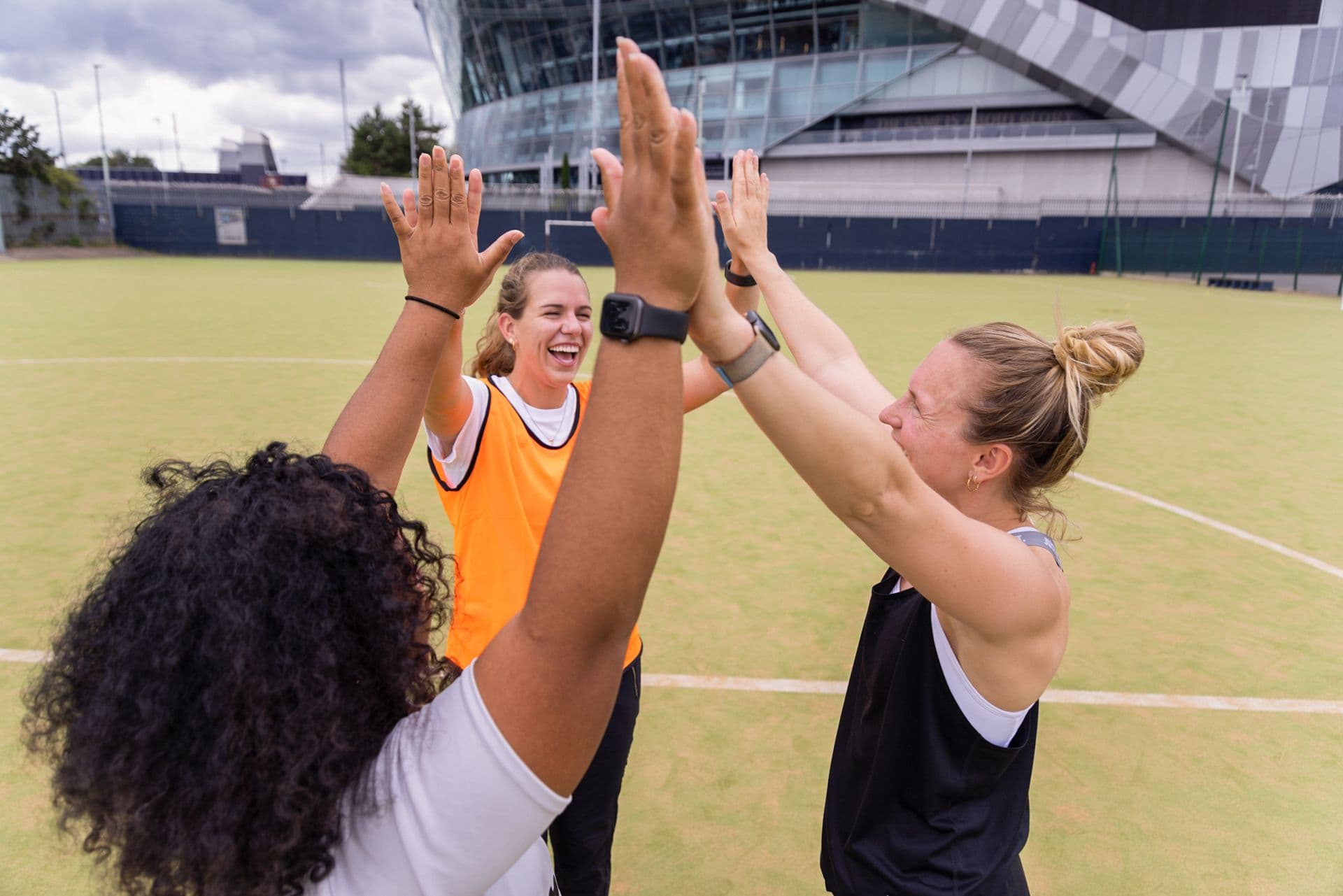
Scenarios and Exercises
Check out the Coach’s Playbook for scenarios and exercises to address the issues we’ve talked about above.
3.
PRACTICE: COACH'S PLAYBOOK
Here, you'll find practical strategies and exercises designed to help you communicate effectively about mental health — and common issues that can impact mental health — with the girls in your program. This section is a hands-on guide that gives tips and techniques.
Let's dive into some strategies to support our girls who might be facing some threats to positive mental health. These aren’t mental health issues — instead, they’re challenges, experiences and expectations girls regularly face in their lives that can negatively impact girls’ mental health now and in the future. On the flip side, we look at opportunities to protect and improve girls’ mental health.

From combating perfectionism and comparison culture to boosting confidence and creating safe spaces, we've got practical tips to help you guide girls toward a positive and resilient mindset. It's all about creating an environment where every player feels empowered to take risks, embrace their strengths and support their teammates.
Many Girls Are Struggling
A 2023 survey of girls and young women aged 11-21 by Girlguiding U.K. found increasing threats to mental health and opportunity.
A few of the findings:
Up from 45% in 2016,
61%
say they are worried or anxious often or most of the time
Up from 48% in 2016,
56%
say they feel like they aren't good enough often or most of the time
Up from 43% in 2016,
52%
say they feel like they need to be perfect often or most of the time
Up from 46% in 2016,
52%
say they often feel ashamed of how they look
Down from 37% in 2009,
29%
say they get the same opportunities as boys and men most of the time
Rethinking Perfectionism
Set up a charge, dive for a ball, try a new jump, take the shot — sports are all about taking chances, whether we succeed or not. Even at the highest levels, most players fail more often than they succeed. But many girls put pressure on themselves to be perfect.
Feeling the need to be perfect adds pressure to an already stress-filled life. In sports, it can keep girls from taking chances and trying new things, which keeps them from improving and enjoying the experience. Eventually, it can lead to dropout.
What to Watch For:
- Persistent frustration or disappointment with anything less than perfect performance
- Self-criticism and fear of failure
- Excessive focus on outcomes rather than the process
- Reluctance to take risks
To learn more about perfectionism, check out this NIH article.
Rethinking Perfectionism: Coaching Tips
Keep a healthy mindset
Focus on healthy motivation and realistic expectations.
Coaching in practice: Before a session, ask girls to huddle up and share one goal they have for themselves and one goal they have for their team. After the session, check in with girls to see if they feel like they achieved their goal, and if not, what they and the team could do to get closer to that goal next time.
Discuss skills, not outcomes
Spend more time talking about skills development than winning and losing; emphasize progress over perfection.
Coaching in practice: Reframe drills or activities in practice to focus on player progress over outcome (e.g. points awarded if you improve from a previous round).
Celebrate bravery
Cheer when girls take chances — especially when the outcome isn't perfect.
Coaching in practice: Here are three ways to encourage bravery:
- Skill of the Week: Introduce a new skill each week and encourage everyone to try it. Make it a fun, low-pressure part of the session where the focus is on effort, not perfection.
- Bravery Boards: Create a Bravery Board where girls can write down every time they try a brave move, adding a sticker or writing their name next to the new skill.
- Challenge by Choice: Offer challenges of varying difficulty levels and let each girl choose their own challenge for the day. This encourages them to push their boundaries in a way that feels safe and personalized. Don’t forget to let girls suggest challenges.
Build team values
Work on a team culture that values effort, growth and resilience.
Coaching in practice: At the end of each session, have each player say something the player next to her did well.
Provide constructive feedback
Constructive doesn’t mean negative! Focus on effort, improvement, and specific aspects of performance girls can control.
Coaching in practice: Build opportunities for regular feedback into your session so that players aren't only getting feedback when they make a mistake. One way to do that is to focus on skills-specific feedback. Set up different skills stations. As girls rotate through the stations, give targeted feedback on the particular skill at each station, emphasizing what they did well and one thing they could try differently next time.
Make mistakes OK
Share stories or your own mistakes and encourage girls to shake off any mistakes they might make.
Coaching in practice: At the start or end of each session, share a "Mistake of the Day" where either you or one of the players shares a mistake they made and what they learned from it. This can help everyone see that mistakes are valuable learning opportunities.
Also, encourage players to keep a personal growth journal where they note down their own perceptions of their performance and any feedback they receive. Occasionally, have them share entries with you to discuss their self-assessments and your observations.
Combatting Comparison Culture
Comparing ourselves to others is something we all do, but for teens, social media makes it easy to get caught up in seeing who's doing what and feeling like they don't measure up. Online social comparisons are associated with body dissatisfaction, depression and possibly even quitting sports altogether.
This is super common in sports too, where athletes might look at their teammates or opponents and wonder why they're not as fast, strong, or skilled. But this kind of thinking can really mess with their heads and hurt their mental health, turning into a cycle of feeling never quite good enough. It's important to recognize this and help girls focus on their own growth and achievements, not just how they stack up against others.
To learn more about comparison culture, see these resources from Very Well Mind.
Combatting Comparison Culture: Coaching Tips
Help them ease up
Remind them not to be too hard on themselves.
Coaching in practice: Organize mini-sessions on positive self-talk. Teach girls how to replace negative or comparative thoughts with positive affirmations about their own progress and abilities.
"Today, we’re going to learn how to talk to ourselves in a way that reflects how awesome we all are. We’ll practice replacing negative thoughts — and hey, we all have them — with positive statements about our own unique skills and progress.”
Spotlight strengths
Help them identify their strengths and celebrate when they do well.
Coaching in practice: During practice, make a point to highlight each player’s unique skills and contributions to the team. This helps players value their own strengths instead of focusing solely on how they stack up against others.
“Hey, I know it's easy to get caught up in comparing yourselves to others. But remember, each of you brings something unique to the team that makes us stronger together. Let's focus on celebrating each other's successes and supporting one another."
Make a big deal out of personal bests
Focus goals on personal achievements, not team records.
Coaching in practice: Encourage each player to set personal performance goals that are tailored to their unique skills and development pace rather than comparing themselves to others. Regularly review these goals to focus on individual progress.
“It’s easy to get discouraged when you see others achieving certain goals or performing better in certain areas. Remember, everyone's journey is different, and progress looks different for each person. Instead of comparing yourselves to others, let's focus on setting individual goals and celebrating our own personal growth."
Tune into feelings
Help them build awareness about how comparisons make them feel.
Coaching in practice: Encourage girls to keep a success journal where they record their daily or weekly achievements, focusing on their efforts and improvements rather than on comparisons with teammates or opponents.
"I get that it’s frustrating to feel like you're not measuring up, but your worth isn't defined by how you stack up against others — it's about the effort you put into improving yourself every day. Let's shift our focus from comparing ourselves to others to focusing on our own strengths and areas for growth."
Focus on the big picture
Help put their comparisons in context.
Coaching in practice: End practice with a reflective cool-down period where girls think about what they’ve learned about themselves and their teammates during the session. Ask them to reflect on how focusing on their own goals instead of comparing themselves with others can change their mindset and improve their satisfaction and performance in sports.
"In sports, it's natural to look to others for inspiration and motivation. However, comparing yourself to others can sometimes lead to feelings of inadequacy or self-doubt. Instead of fixating on what others are doing, let's channel that energy into focusing on our own progress and growth. Remember, you're not competing against your teammates — you're all working together towards a common goal."
Boosting Confidence
Feeling confident and having good self-esteem make us feel good about what we can do. It's important to help girls build a positive view of themselves. Sports offer an amazing opportunity to help girls develop confidence and positive self-esteem. However, without the right strategies, confidence can erode quickly in sports, particularly when girls are dealing with issues like perfectionism and comparison culture.
This doesn't mean ignoring mistakes. In fact, research shows positive, corrective information following a mistake actually helps girls bounce back stronger and more confident.
To learn more about building confidence, check out the National Association of Athletics.
Boosting Confidence: Coaching Tips
Cheer Them On
Create a team vibe that's all about support and positivity.
Coaching in practice: Start or end each session with a shout-out round where everyone can publicly acknowledge and appreciate efforts, attitudes, or achievements they noticed in their teammates during the session. This boosts morale and fosters a culture of mutual respect and encouragement.
Focus on the Journey
Celebrate the hard work and progress, not just the wins.
Coaching in practice: Set up a visual progress board where girls can add notes or markers when they achieve personal milestones, learn new skills, or improve on existing ones. Review the board regularly as a group to help players see growth over time. Remember, every step forward is a celebration!
Set Achievable Goals
Help them set goals that are realistic and achievable.
Coaching in practice: Conduct goal-setting sessions where girls have their own goals. These can follow the SMART approach — specific, measurable, attainable, relevant, and time-bound goals. Follow up with one-on-one sessions to talk about progress and switch up goals as needed.
Teach Resilience
Show them that bouncing back from setbacks is a big win too.
Coaching in practice: After challenging practices or games, hold bounce-back circles where girls can share their experiences with setbacks and discuss strategies for overcoming them. This normalizes the challenging experience and helps girls build tools to deal with tough times.
Play to Their Strengths
Encourage activities that let each athlete shine in her own way.
Coaching in practice: Incorporate games and drills that allow girls to showcase their individual talents. Rotate positions or activities to give everyone a chance to lead or excel in their strongest area. This not only builds individual confidence but also shows the unique value each player brings to the team.
Defeating Self-Defeating Language
When someone keeps putting themselves down, thinking they're always going to fail or can't see their own value, it's self-defeating. It can get in the way of sports and life. This kind of thinking might sound like, "I'm always terrible at this," "I'll never win," or "Why bother trying?"
Sometimes, this shows up as a person feeling they need to be perfect and expressing fears of messing up, or if they're always hard on themselves, making fun of themselves in a negative way, or feeling less than others. Recognizing these patterns is the first step to helping girls see their true strengths and value. As coaches, you can help to rewrite the narrative.
Learn more about self-defeating language and what to do when kids are hard on themselves at Child Mind.
Defeating Self-Defeating Language: Coaching Tips
Reframe Thoughts
Guide girls to reshape negative thoughts or statements.
Coaching in practice: Using reframing drills to actively listen for negative statements and immediately help girls reframe them. For example, if someone says, "I always mess up," prompt them to rephrase it to, "Hey, I'm learning!"
Help Shift the Perspective
Help them put situations into a broader, healthier perspective.
Coaching in practice: Hold short group discussions to reflect on challenging situations. Encourage athletes to describe the situation from a different perspective or imagine what they might tell a friend in the same situation. This helps them see the bigger picture and reduces the impact of negative thoughts.
Spot Distortions
Encourage girls to question and test the accuracy of their negative beliefs and assist them in identifying and understanding skewed or irrational thoughts.
Coaching in practice: Teach girls about common cognitive distortions (like all-or-nothing thinking, overgeneralizing, or catastrophizing) and have them practice spotting these in daily conversations. This awareness can help them recognize and correct distorted thinking.
Replace Negativity
Teach them to swap out harmful thought patterns with constructive ones.
Coaching in practice: Create a "thought exchange" game where girls write down a negative thought on a piece of paper and then physically exchange it for a positive one provided by a teammate or coach. This visual and interactive approach reinforces the habit of thinking positively.
Boost Positivity
Foster the use of uplifting language to build their self-esteem.
Coaching in practice: Start a "Positive Language Week" where everyone focuses on using compliments. Celebrate the most uplifting phrase of the week, encouraging a habit of positive communication.
Creating Safe Spaces
Creating a space where girls feel safe, valued and heard is key to their mental well-being. It's also what keeps them coming back to play. When we talk about safe spaces, we mean both physical and emotional safety.
A safe space is where everyone is mindful and respectful of each other's differences, free from bullying, and where every player feels like you have their back. Safe spaces make it clear you've thought about girls' needs — from bathroom availability to right-size equipment. Above all, it's about creating an environment where, no matter what's going on in their lives, girls know they can find a sense of safety and belonging when they come to play.
To learn more, check out this New York Times article on creating safe spaces.
Creating Safe Spaces: Coaching Tips
Foster Support
Cultivate an environment where everyone celebrates and supports each other.
Coaching in practice: Schedule team bonding activities that emphasize collaboration over competition. Activities like team-building games, like a scavenger hunt, or shared goals, like a human knot game, can enhance mutual support and reinforce a positive team spirit.
Avoid Blame
Actively discourage girls from placing blame on their teammates for mistakes or losses.
Coaching in practice: Implement blame-free debrief sessions after games or practices where the focus is on learning and improvement rather than what went wrong. Encourage discussions about what can be learned from each situation without pointing fingers.
Communicate Openly
Lead by example in fostering open, nonjudgmental conversations.
Coaching in practice: Hold regular "Open Mic" sessions where girls can express their thoughts, feelings, and concerns in a safe and supportive setting. As a coach, actively listen and respond without judgment, setting a tone of openness and trust.
Seek Feedback
Encourage girls to give and receive constructive feedback, creating room for growth and improvement.
Coaching in practice: Organize feedback circles where players can offer and receive feedback from peers and coaches. Make sure sessions are designed to ensure the feedback is constructive, focusing on specific behaviors and actions, not personal critiques.
Let Girls Be Themselves
Accept and learn from girls however they choose to show up.
Coaching in practice: Create opportunities for girls to share and celebrate aspects of their identity, such as cultural backgrounds or personal interests. This could be through themed practice days like favorite superhero day or music day, where girls bring or wear something to express their interests, enhancing acceptance and appreciation within the team.
Ensure Protection
Make sure girls feel secure and backed by their coaches and other program staff. That means creating a space free of bullying that celebrates supporting each other.
Coaching in practice: Develop and clearly communicate safety protocols that address both emotional and physical safety. Make sure all athletes and staff are aware of the procedures for reporting and addressing bullying or harassment.
Be Aware of Physical Safety
Select practice venues that have accessible, well-lit, and private facilities to ensure physical safety and comfort.
Coaching in practice: Conduct regular audits of venues to make sure they meet safety standards. Look for things like adequate lighting, safe equipment, and private, secure, well-lit restrooms that are near the play space.
4.
SUPPORT: THE COACH'S MENTAL HEALTH
We know coaches need support too. This section focuses on your well-being, providing resources and tips for managing your own mental health, setting boundaries, prioritizing self-care and building support systems.

Understanding your role as a coach means recognizing where your support ends and professional help begins. It's about guiding and supporting girls effectively while maintaining your own well-being. We know it's not always easy.
Understanding Your Limits
You're a key figure in girls’ lives, providing stability and compassion. However, it's crucial to know the limits of your role. While you should be informed about mental health and ready to offer support, remember that professional help is sometimes necessary.
As a coach, you can:
- Offer a listening ear and general support.
- Understand mental health basics to foster meaningful conversations.
- Be a reliable, positive presence in their lives.
However, you are not expected to:
- Act as a substitute for professional mental health care.
- Try to be a therapist to the girls in your program.
- Be an expert on mental health topics.
- Be the only source of guidance — utilize the community around you.
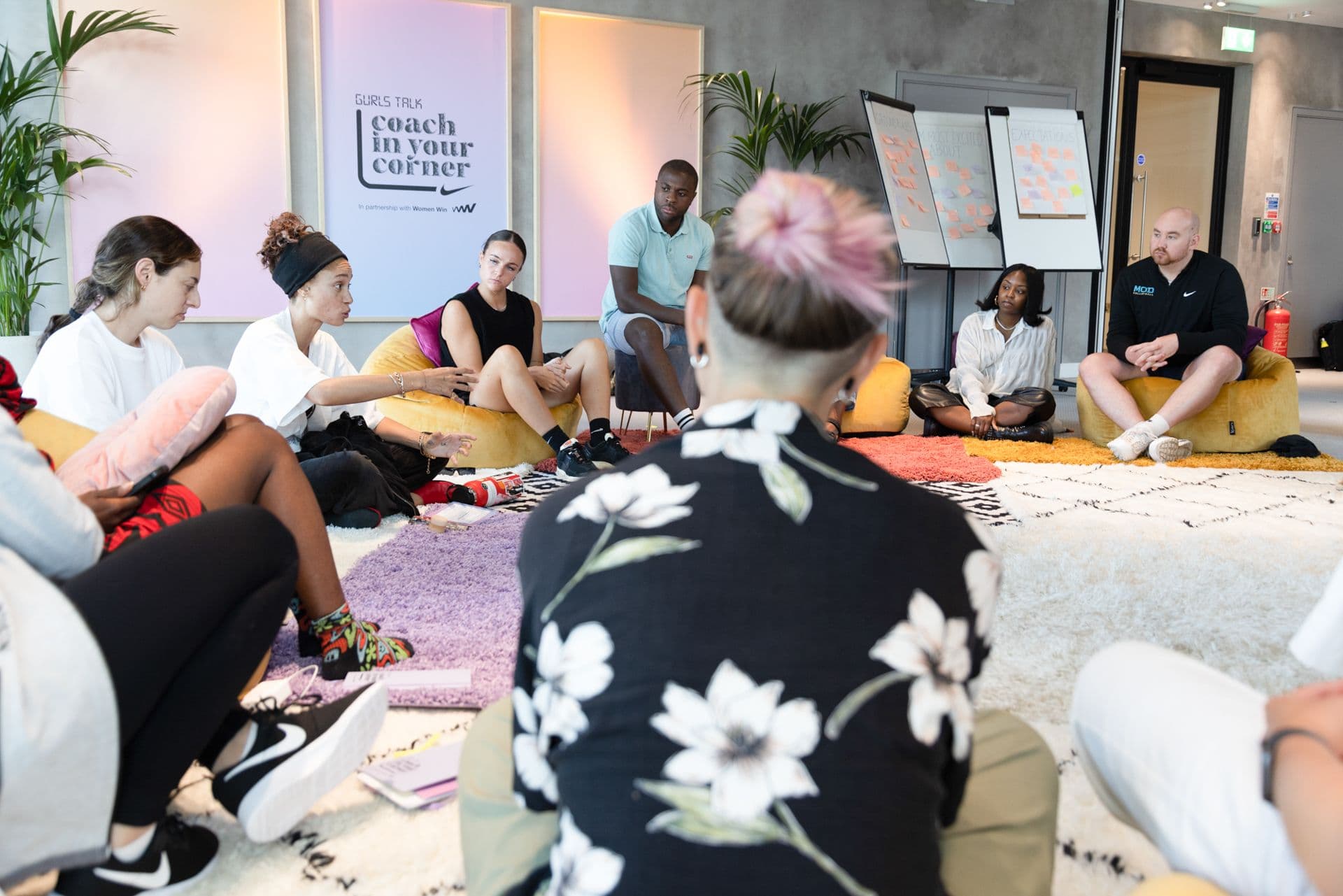
First Things First: Self-Check-In
We know you're dealing with a lot as a coach. Remember to take some time to assess your own well-being and rely on support as needed.
- Physical: Ensure you're eating, sleeping, and exercising well.
- Emotional: Manage stress effectively and maintain emotional balance.
- Social: Lean on your support network and cherish your social connections.
- Personal: Pursue hobbies and activities that bring you happiness.

Setting Boundaries
It's important to establish limits — both to protect your mental health and provide the best support to girls in your program. Recognize when you're overextended and need to step back. Effective boundary-setting includes:
- Acknowledging your limits in providing support.
- Utilizing your support network.
- Being clear about how you prefer to receive support.
- Regularly assess your well-being and take necessary breaks.
- Cultivating positive habits outside of coaching.
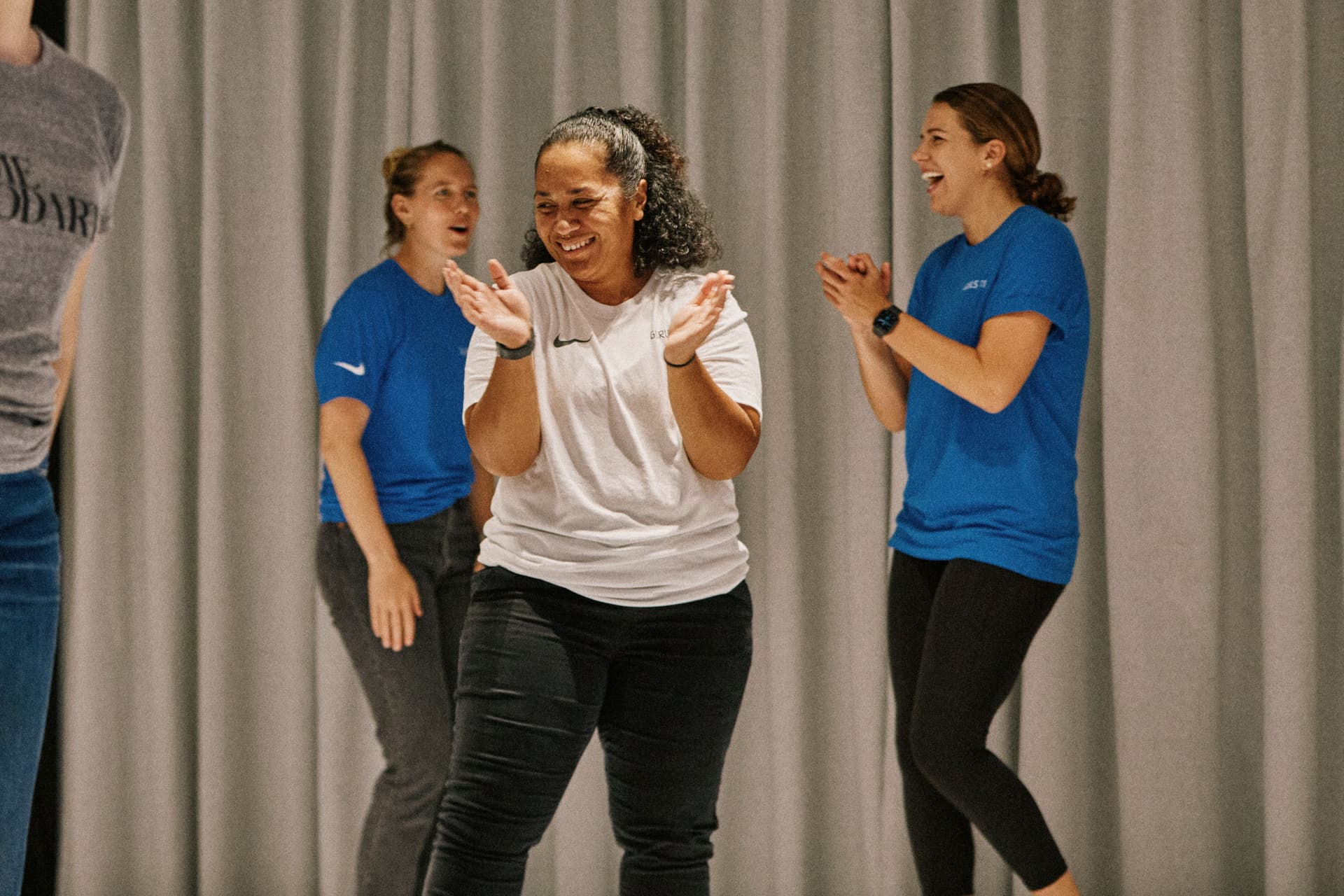
Building Your Support Village
Having a strong support network is essential. To build your village:
- Communicate openly with fellow coaches.
- Don't hesitate to discuss difficult subjects or seek advice.
- Explore available tools and resources.
- Connect with mental health professionals within your community or network.
Hear from Other Coaches
"Meet the Coaches" videos feature CIYC coaches talking about what mental health means to them. They share their personal stories, how they cope with challenges, and give general tips for staying mentally healthy. These videos aim to make the topic of mental health more relatable and provide encouragement and support for our community.
5.
RESOURCES: COACHING TOOLBOX
Consider this your go-to resource for practical tools and templates that you can use during practice and beyond. This section includes checklists, communication tips, and activities that reinforce the concepts we talk about here.
Here's a set of practical worksheets and tools that can help you encourage positive mental health in girls. You'll find straightforward strategies and insights to help you support girls' emotional development and create an environment girls love to play in.
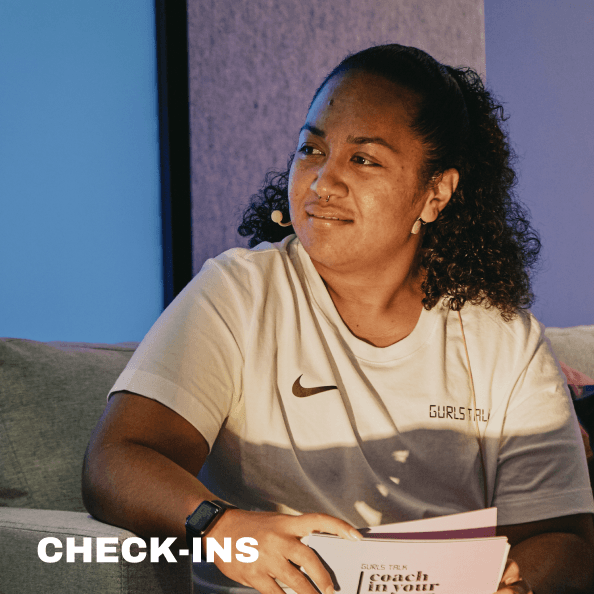
Check-Ins
The Weather Report Check-In is a simple and effective way to check in with girls and create a supportive environment where girls feel comfortable expressing their feelings.
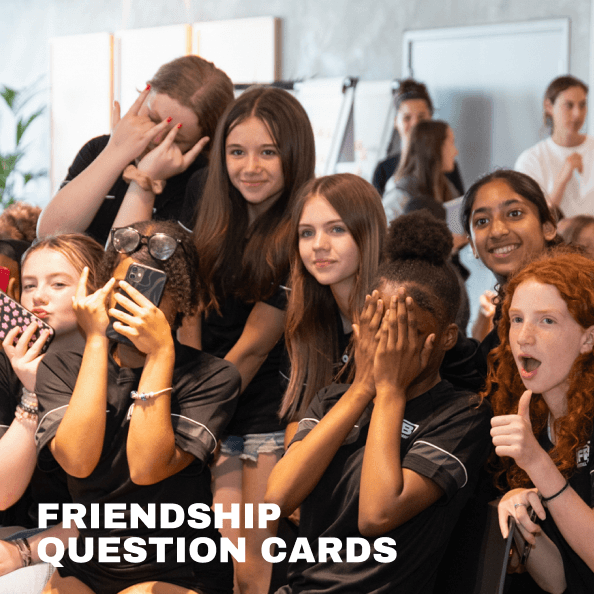
Friendship Question Cards
Consider this a starting kit to get girls talking. They're ice-breaking questions to get to know each other. Have girls pick a card and do and ask and answer exercise with a partner who is randomly selected.
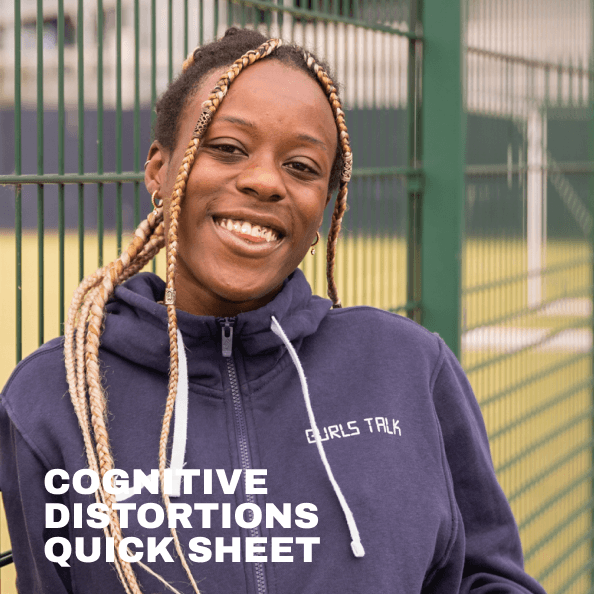
Cognitive Distortions Quick Sheet
Get a quick overview of common cognitive distortions, such as negative filtering, overgeneralization, and all-or-nothing thinking, while learning strategies to help girls recognize, challenge and reframe unhelpful thought patterns.
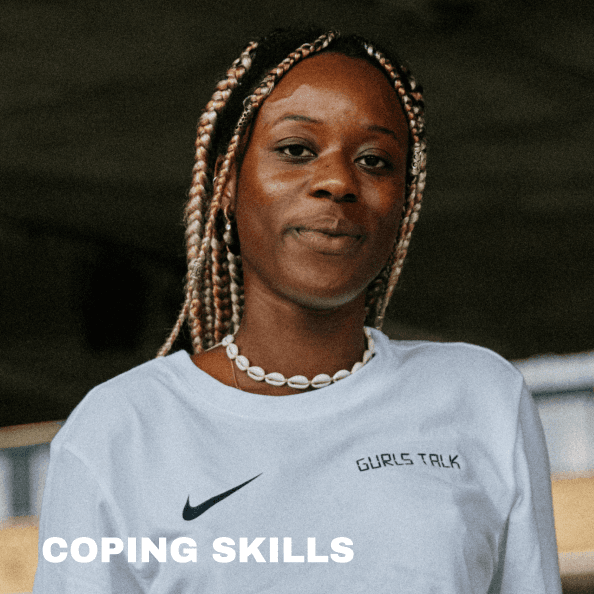
Coping Skills
Take a look at coping strategies, including square breathing and journaling, to help girls focus, manage stress and increase mindfulness by engaging all five senses and paying attention to their body's signals of tension or relaxation.

Coping Skills Deck
Help girls manage stress with these coping skills flashcards. They offer easy ways to feel better and handle tough situations. The next time girls aren’t feeling their best, like they need a little extra support, or are just curious about what healthy coping looks like, they can go through the deck and choose a card that feels right.

Journaling Prompts
Encourage mindfulness and reflection with journaling exercises. Girls can use this wellness journal to track feelings and progress – from exploring things that didn’t go well that day to listing out movement goals and affirmations.

Safeguarding Mental Health
Your mental health matters too. This worksheet tailored to coaches and includes coping skills, a checklist to check in with yourself and advice on safeguarding your mental health.
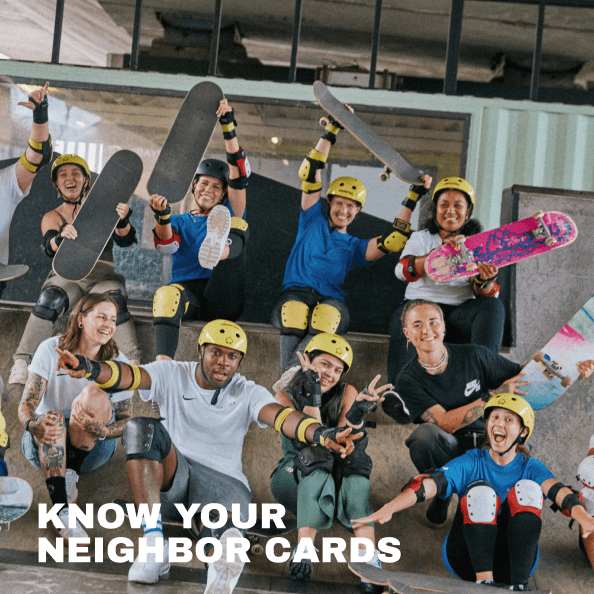
Know Your Neighbor Cards
It’s not always easy to encourage teammates to get to know each other. These cards are a great way to help girls connect. Each card includes a prompt — things like describing a perfect day or sharing something that made her smile today.
6.
CRISIS: LIFELINES
How do you get help when someone faces mental health challenges that go beyond the scope of coaching? Here, you can find national crisis lines for the U.S. and U.K., as well as advice about resources to identify, including mental health professionals and crisis services, to ensure you have quick access to expert support when needed.
If a girl's health or safety is in question right now, go to Lifelines.

Trust your instincts
If you want to know what signs to look for, check the checklist. If you think it's time to connect a girl to professional resources in your community, go to resources. If a girl's health or safety is in question right now, go to the Lifelines.
Developing a Safety Plan: Checklist to Support Girls' Mental Health
Watch for Signs:
- Changes in mood, behavior or appearance
- Withdrawal, unusual sadness or anxiety
- Unusual emotional outbursts
- Hopelessness or talk of suicide
Reach Out:
- Talk to her and offer support. Show you care and are there to listen.
- Suggest she chat with someone she trusts, like a friend, family member or someone else she trusts.
- If your concerns persist, talk to her parent or guardian to figure out the best way to help.
Ask for Advice:
- If you're concerned, get advice from mental health experts. They can guide you on what to do next.
Build a Positive Space:
- Create an environment where everyone feels safe to talk and ask for help.
- Promote open communication and show that it's OK to talk about mental health.
Be Ready:
- Have emergency contacts ready for quick help.
Connecting to Resources
As coaches, we know you do a great job supporting the girls in your program. You have a critical opportunity to create a positive, supportive vibe, build strong relationships and offer guidance. But remember, no one expects you to be a mental health expert. Instead, we want to make sure you can point girls in the right direction if they need it.
Here are some types of organizations you can get to know in your community:
- Local Mental Health Organizations: These organizations often offer resources, workshops, and support services that can benefit both coaches and girls.
- Schools: The schools girls attend may have counselors, psychologists, and wellness programs to help you coordinate mental health resources.
- Community Centers: Community centers often offer programs and activities that promote mental well-being.
- Community Events: Coaches and the girls in their programs can participate in community events focused on mental health awareness and advocacy. This might include attending mental health walks, fundraisers, or awareness campaigns organized by local organizations.
- Help at your fingertips: We suggest coaches have a contact card with info on local mental health resources. Add the name and contact for a local nearby mental health center, a mental health professional (the center might have a recommendation) and, if available, contact information for the counselor at the school(s) the girls you work with attend. Keep it handy so you're ready with extra help and resources when you're looking out for your player's mental well-being.
Crisis Hotlines
In the U.K.
- Samaritans
Whatever you're going through, a Samaritan will face it with you.
https://www.samaritans.org
Phone: 116 123
(24/7) - Mind
Promotes the views and needs of people with mental health problems.
www.mind.org.uk
Phone: 0300 123 3393
(Mon-Fri, 9 am-6 pm) - Refuge
For Women and Children against domestic violence
https://www.refuge.org.uk
Phone: 0808 2000 247
(24/7) - Stonewall
Leading UK-based LGBTQ+ charity
https://www.stonewall.org.uk
Phone: 0800 0502020
(Mon-Fri, 9:30-4:30 pm) - PAPYRUS
PAPYRUS is the national charity dedicated to the prevention of young suicide.
https://papyrus-uk.org
Call: 0800 068 4141
Text: 07860039967
Email: pat@papyrus-uk.org
(9 am – 10 pm weekdays, 2 pm – 10 pm weekends, 2 pm – 10 pm bank holidays)
In the U.S.
- National Suicide and Crisis Lifeline
Phone: 988
24/7 - NAMI HelpLine
The NAMI HelpLine is a free, nationwide peer-support service providing information and resources
https://www.nami.org
Phone: 1-800-950-NAMI (6264)
(Mon-Fri, 10 am–6 pm ET) - SAMHSA's National Helpline
SAMHSA's National Helpline is a free, confidential, 24/7, 365-day-a-year treatment referral and information service (in English and Spanish) for individuals and families facing mental and/or substance use disorders.
https://www.samhsa.gov
Phone: 1-800-662-HELP (4357)
(Available 24/7 across the U.S.) - The Trevor Project
The Trevor Project is the leading national organization providing crisis intervention and suicide prevention services to lesbian, gay, bisexual, transgender, queer & questioning (LGBTQ) young people under 25.
https://www.thetrevorproject.org
Phone: 1-866-488-7386
(Available 24/7 across the U.S.) - RAINN
RAINN (Rape, Abuse & Incest National Network) is the nation's largest anti-sexual violence organization.
https://www.rainn.org
Phone: 800.656.HOPE (4673)
(Available 24/7 across the U.S.)
7.
GLOSSARY
A comprehensive glossary that defines key mental health terms in everyday terms. This section helps you communicate more effectively about mental health and recognize the challenges people might face.
Anxiety: Feeling worried or uneasy, especially about something that's going to happen or might happen.
Boundaries: Rules or limits you set to protect yourself and keep your relationships healthy.
Coping mechanisms: Ways people handle stress or tough times, like solving problems, getting support or relaxing.
Depression: A condition where someone feels really sad and hopeless and loses interest in things they usually enjoy.
Medication: Drugs prescribed by doctors, sometimes to help with mental health issues, like medicines for depression or anxiety.
Mental health stigma: Bad opinions or discrimination against people with mental health issues, leading to feelings of shame or not wanting to get help.
Mindfulness: The practice of paying attention to the present moment with openness, curiosity, and acceptance, often through meditation or other mindfulness exercises.
Peer: In this context, someone who understands what it's like to deal with your specific life circumstances, mental health challenges or substance use.
Protective factor: Things that lower your chance of developing a problem and help balance out any risks.
Resilience: The strength to recover from tough times, trauma, or stress and to face challenges in a positive way.
Self-care: Things you do to take care of your body and mind, like working out, meditating, or hanging out with people you love.
Stress: How your body reacts to tough situations, which can make you feel strained physically, emotionally, or mentally.
Suicide prevention: Ways to help reduce the chance of suicide, offering support to those who might be in danger.
Support system: People who care about you and provide help or encouragement when you need it.
Therapy: Talking with a trained professional to work through emotional or behavioral issues and improve your well-being.
Triggers: Things or situations that cause a strong emotional response, often because of past experiences.
Wellness: Being healthy in your body, mind, emotions and relationships with others.
Risk factor: Things that increase your likelihood of facing a problem.
Self-stigma: Feeling bad about yourself because of your own mental health, often due to taking in what society wrongly thinks.
Acknowledgments
We are grateful to the incredible coaches who participated in the Coach in Your Corner program. Their dedication, insights, and commitment to supporting adolescent girls have been invaluable, and their stories and experiences have enriched this toolkit, making it a powerful resource for many.
We also want to offer heartfelt thanks to our partners, Nike and Women Win, for their support in creating and developing the Coach in Your Corner Toolkit. Their commitment to empowering coaches and advancing mental health awareness is helping to create a brighter future for adolescent girls everywhere.
Lastly, we would like to extend our appreciation to our esteemed advisory board whose expertise, guidance and dedication have been instrumental in shaping this resource:
Dr. Ciara Dockery, Clinical Suicide Prevention Expert
Dr. Phillippa Diedrichs, Clinician and Body Image Expert
Carla Suber, LCPC, Sports Clinician
Dr. Ramona Cox, Director, The Champions Network at Doc Wayne Youth Services, Inc.


